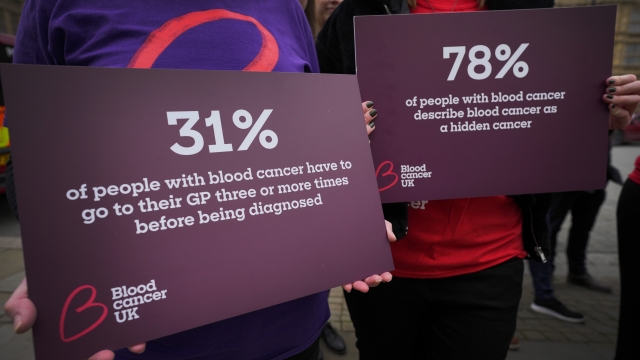About 1 in 5 men and 1 in 5 women will develop cancer in their lifetime.
"It serves as a warning that something has to be done," said Freddie Bray, branch head for cancer surveillance at the International Agency for Research on Cancer (IARC).
The three most common cancers worldwide in 2022 were: lung cancer with 2.5 million new cases, followed by female breast cancer with 2.3 million cases and colorectal cancer wing 1.9 million cases.
Lung cancer was the deadliest in 2022, making up nearly 20% of cancer deaths according to the new report from the WHO's International Agency for Research on Cancer.
"Lung cancer, including its primary risk factor, tobacco control, remains a priority for almost every country around the world, and this is also now being compounded by factors like air pollution," said Dr. André Ilbawi, focal point for the cancer program at WHO headquarters.
Colorectal cancer accounted for more than 9% of cancer deaths worldwide. Officials say higher red meat, smoking and alcohol consumption are partially to blame.
"It's certainly related to the gradual adoption of more of a more Westernized lifestyle and including changes in the diet," said Ilbawi.
Breast cancer screenings have changed in recent years to include younger patients and remove older-age caps. Despite growing cases, breast cancer ranks far less deadly by comparison with others, at about 6% of deaths.
The WHO hopes this will serve as a wake-up call, noting global cancer cases are expected to rise 77% with 35 million new cases per year by 2050.
"The doubling of the cancer burden in some of the health systems least prepared, that means double the hospitals, double the workforce, double the machines, and of course, all the costs that come with it," said Ilbawi.
Officials say "adequate cancer and palliative care" are needed — especially in developing nations.
SEE MORE: More cancers linked to water at Camp Lejeune, large CDC study finds
Trending stories at Scrippsnews.com




